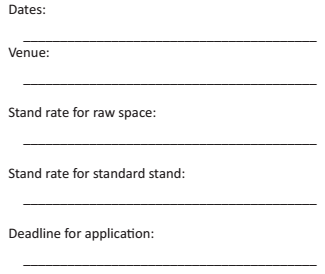 题目内容
(请给出正确答案)
题目内容
(请给出正确答案)
Over the past decade, many companies had perfected the art of creating automatic behaviors
" There are fundamental public health problems, like dirty hands instead of a soap habit, that remain killers only because we can't figure out how to change people's habits, " said Dr. Curtis, the director of the Hygiene Center at the London School of Hygiene & Tropical Medicine. "We wanted to learn from private industry how to create new behaviors that happen automatically"
The companies that Dr. Curtis turned to—Procter & Gamble, Colgate-Palmolive and Unilever—had invested hundreds of millions of dollars finding the subtle cues in consumers' lives that corporations could use to introduce new routines.
If you look hard enough, you'll find that many of the products we use every day—chewing gums, skin moisturizers, disinfecting wipes, air fresheners, water purifiers, health snacks, teeth whiteners , fabric softeners, vitamins—are results of manufactured habits. A century ago, few people regularly brushed their teeth multiple times a day. Today, because of canny advertising and public health campaigns, many Americans habitually give their pearly whites a cavity-preventing scrub twice a day, often with Colgate, Crest or one of the other brands.
A few decades ago, many people didn't drink water outside of a meal. Then beverage companies started bottling the production of far-off springs, and now office workers unthinkingly sip bottled water all day long. Chewing gum, once bought primarily by adolescent boys, is now featured in commercials as a breath freshener and teeth cleanser for use after a meal. Skin moisturizers are advertised as part of morning beauty rituals, slipped in between hair brushing and putting on makeup.
" Our products succeed when they become part of daily or weekly patterns, " said Carol Berning, a consumer psychologist who recently retired from Procter & Gamble, the company that sold $76 billion of Tide, Crest and other products last year. " Creating positive habits is a huge part of improving our consumers' lives, and it's essential to making new products commercially viable. "
Through experiments and observation, social scientists like Dr. Berning have learned that there is power in tying certain behaviors to habitual cues through relentless advertising. As this new science of habit has emerged, controversies have erupted when the tactics have been used to sell questionable beauty creams or unhealthy foods.
According to Dr. Curtis, habits like hand washing with soap_________.
A.should be further cultivated
B.should be changed gradually
C.are deeply rooted in history
D.are basically private concerns

 如搜索结果不匹配,请
如搜索结果不匹配,请 





















